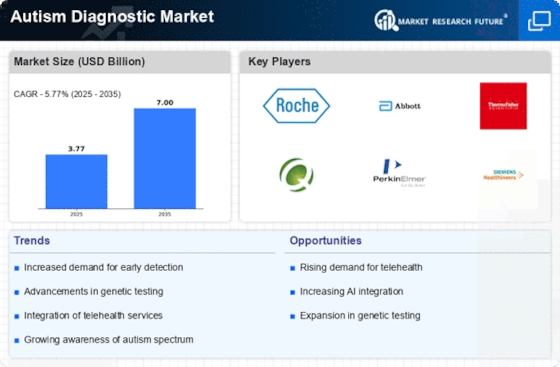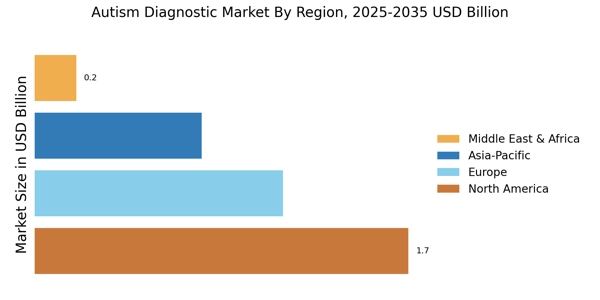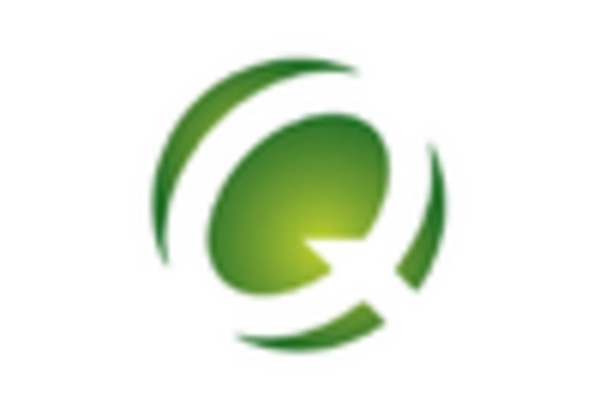Increased Funding for Autism Research
The Autism Diagnostic Market is benefiting from increased funding directed towards autism research and diagnostic initiatives. Governments and private organizations are allocating substantial resources to enhance understanding and treatment of ASD. For example, funding initiatives have been established to support the development of new diagnostic tools and methodologies. This financial backing is crucial for fostering innovation within the Autism Diagnostic Market, as it enables researchers and companies to explore novel approaches to diagnosis. The influx of capital is likely to accelerate advancements in the field, ultimately leading to improved diagnostic accuracy and patient outcomes.
Rising Public Awareness and Advocacy Efforts
Public awareness and advocacy efforts surrounding autism are playing a pivotal role in shaping the Autism Diagnostic Market. Campaigns aimed at educating the public about ASD are leading to increased recognition of symptoms and the importance of early diagnosis. As more individuals become informed, there is a corresponding rise in the demand for diagnostic services. Advocacy groups are also pushing for policy changes that support better access to diagnostic resources. This growing awareness is likely to drive the Autism Diagnostic Market forward, as stakeholders respond to the increasing need for effective diagnostic solutions.
Technological Innovations in Diagnostic Tools
Technological advancements are significantly influencing the Autism Diagnostic Market. Innovations such as artificial intelligence, machine learning, and advanced neuroimaging techniques are enhancing the accuracy and efficiency of autism diagnostics. For instance, AI-driven tools can analyze behavioral patterns and provide insights that were previously unattainable. The integration of these technologies not only streamlines the diagnostic process but also reduces the time required for assessments. As a result, the Autism Diagnostic Market is poised for growth, with an increasing number of healthcare facilities adopting these cutting-edge solutions to improve diagnostic outcomes and patient care.
Growing Demand for Early Intervention Services
The Autism Diagnostic Market is witnessing a heightened demand for early intervention services, which are critical for children diagnosed with ASD. Research indicates that early diagnosis and subsequent intervention can lead to significantly better developmental outcomes. As awareness of the importance of early intervention spreads, parents and caregivers are increasingly seeking diagnostic services at younger ages. This trend is driving growth within the Autism Diagnostic Market, as healthcare providers expand their offerings to include comprehensive diagnostic assessments tailored for early intervention. The emphasis on timely diagnosis is likely to shape the future landscape of autism diagnostics.
Rising Prevalence of Autism Spectrum Disorders
The Autism Diagnostic Market is experiencing a notable surge in demand due to the increasing prevalence of Autism Spectrum Disorders (ASD). Recent estimates indicate that approximately 1 in 44 children are diagnosed with ASD, a figure that has risen over the past decade. This growing incidence necessitates enhanced diagnostic tools and methodologies, thereby driving market growth. As awareness of ASD expands, parents and healthcare providers are more inclined to seek early diagnosis and intervention, which is crucial for effective management. Consequently, the Autism Diagnostic Market is likely to witness a robust expansion as stakeholders strive to meet the rising demand for accurate and timely diagnostic solutions.

















